Keynote Speakers
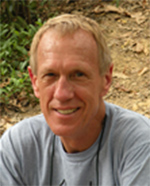
|
Professor of Applied Linguistics Director of CAES The University of Hong Kong Ken Hyland is Professor of Applied Linguistics and Director of the Centre for Applied English Studies at HKU. He was previously a professor at the Institute of Education, University of London and has taught in Africa, Asia and Europe. He is best known for his research into writing and academic discourse, having published over 230 articles and 26 books on these topics. His most recent books include Academic Publishing (Oxford University Press, 2015), The Handbook of EAP (edited with Philip Shaw, Routledge, 2016), Academic Written English (Shanghai Foreign Language Press, 2014), Teaching and researching writing 3rd edition (Routledge, 2016) and Innovation and Change in Language Education (edited with Lillian Wong, Routledge, 2013.). Ken is an Honorary professor at Warwick University and a Foundation Fellow of the Hong Kong Academy of the Humanities. He was founding co-editor of the Journal of English for Academic Purposes and co-editor of Applied Linguistics. Feedback on Writing: Faculty and Student PerceptionsWhile the research on feedback given to undergraduate writers mainly focuses on what goes on in language classrooms, most of the writing that matters to students occurs in disciplinary contexts. They are 'Writing-to-Learn' rather than 'Learning-to-Write', yet we know little about what faculty teachers are trying to achieve with their feedback or how it is received by students. This presentation explores these issues. Drawing on interviews with 20 teachers and 24 undergraduates from four faculties at HKU, I explore their perceptions of feedback to illuminate students' experiences of disciplinary writing. Overall, the findings show that although faculty would like to see their students write in disciplinary approved ways, their feedback rarely supports this, at the same time students often take negative messages from the feedback concerning their learning, disciplinary communication and teacher-student relationships. As a result, EAP writing teachers are often the only resources students have in acquiring a better understanding of writing and its relation to disciplinary practices. |
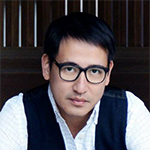
|
Author of No City for Slow Men Columnist for SCMP, EJIsight and HKFP Jason Y. Ng is the bestselling author of HONG KONG State of Mind (2010), No City for Slow Men (2013) and Umbrellas in Bloom (2016). Together, they form his Hong Kong trilogy that tracks the city's post-colonial development. As a columnist, Ng contributes to the Guardian, the South China Morning Post, EJ Insight and Hong Kong Free Press. Ng is also an adjunct associate professor at the Faculty of Law of the University of Hong Kong, and the President of PEN Hong Kong, a chapter of PEN International which promotes literature and defends the freedom of expression around the world. For more, visit www.jasonyng.com . Engaging the AliterateHong Kongers are often called "aliterate": able to but unwilling to read. In the age of Facebook and Wikipedia, how do writers engage the time-pressed, attention-deficient citizen? Jason Y. Ng, author of several books about Hong Kong, tackles this question by sharing his journey from a blogger to a newspaper columnist and published author. Ng also discusses the role of writers and readers in the current political climate, and argues that aliteracy is a form of self-censorship that disserves and disarms the citizenry. As Hong Kong society becomes more politically charged and free expression comes under increasing attack, the need for writers to persuade, engage and challenge their readers has taken on new urgency. |
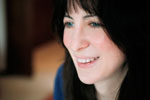
|
Associate Professor in the School of English The University of Hong Kong Page Richards is an Associate Professor in the School of English at the University of Hong Kong. Holding a Ph.D. from Harvard University and Master's degree in Creative Writing from Boston University, she has also studied and performed at the Playwrights' Theatre in Boston and has contributed to theatre and film production in Hollywood. Richards received a national Mellon Fellowship in the Humanities in the U.S., the Outstanding Teaching Award from the Faculty of Arts at HKU, a Vermont Studio Writer's Fellowship for Poetry and Translation, among many other awards in critical and creative studies. She publishes in poetry, American literature, drama, and performance. She currently directs the HKU MFA in Creative Writing, the HKU Black Box, the HKU International Poetry Prize, the Writers' Series, and production of Yuan Yang: A Journal of Hong Kong and International Writing, among other programmes in the HKU Creative Studio. The Wonder of Genre and History
Creative writing in Hong Kong offers an ever widening community of writers' and scholars' unique perspectives, especially when we consider the history and landscape of genre. Too frequently, genre is offered as a contemporary set of blueprints to follow, at best grounded in good practices and at worst reduced to rules. Still, the deeper roots of genre in any language are inseparable with history: in particular, historical period of birth. Here, the excitement begins. Genres in English, for example, including creative nonfiction and fiction, or poetry and fiction, are themselves born into different eras: they are born and develop in periods and times that profoundly frame the legacy and ongoing expectations of storytelling that any writer, picking up the instrument of English language, inherits and reshapes.
|
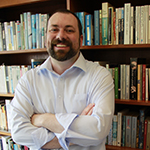
|
Associate Professor of English Literature The Chinese University of Hong Kong Grant Hamiltonis an Associate Professor of English Literature at the Chinese University of Hong Kong. His teaching and research interests include twentieth-century world literatures, African literatures, and literary theory. He writes a well-read blog about such things called On World Literature. His most recent work includes a book on the intersection between speculative realism and literary theory, titled The World of Failing Machines: Speculative Realism and Literature (2016) and a co-edited collection of new essays on the Mozambican writer Mia Couto, titled A Companion to Mia Couto (2016). A Third Way - Creative CriticismThis talk is about the art of criticism - about how we read texts or, more broadly understood, how we have been taught to talk about objects of enquiry. It arises from thinking about the changes that the rather new philosophical movement of object-oriented philosophy seems to instruct in the way in which we read and write about literature. This talk suggests that if the (literary) critic is to be faithful to the basic tenets of an object-oriented philosophy then she must pursue a rather different kind of criticism to the one that we have been trained to conduct. Indeed, it is argued that the critic must pursue a creative criticism - that is, a style of criticism which is defined by a genuine recognition of the creative moments by which the reader becomes writer in the act of critique. What does such a creative criticism look like? How does one begin to write this kind of criticism? How can it be graded? These are just some of the questions that this talk will look to answer. But, the main concern of all of this is to re-enliven the personal encounters that we have with literature. In other words, it is to lessen the notion of reading literature as discipline in order to re-legitimize the act of reading for pleasure. The wager here is that recovering this kind of pleasure in reading leads to a more honest and, in that, more meaningful criticism to the one that we already know (even if it is so only for the critic herself). |
Invited Speakers
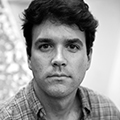
|
Poet & Assistant Professor The Hong Kong Baptist University James Shea is the author of two poetry collections, The Lost Novel and Star in the Eye. A graduate from the Iowa Writers' Workshop, he has taught poetry writing at Nebraska Wesleyan University, the University of Chicago's Committee on Creative Writing, Columbia College Chicago's MFA Program in Poetry, DePaul University, and as a poet-in-residence in the Chicago public schools, where he received The Poetry Center of Chicago's Gwendolyn Brooks Award for Excellence in Teaching. A former Fulbright Scholar in Hong Kong, he is currently an assistant professor in the Creative and Professional Writing Programme at Hong Kong Baptist University. Mistranslation as Poetry ExerciseThis workshop explores how students of creative writing can generate writing material out of unorthodox translation practices, such as self-translation, homophonic translation, and "radical" translation. From Louis Zukofsky's homophonic translations of Latin poetry to Ezra Pound's advice to self-translate ("Translation is likewise good training, if you find that your original matter "wobbles" when you try to rewrite it. The meaning of the poem to be translated cannot "wobble."), poets have often found inspiration in unconventional translation methods. Pound himself experimented with translation in the form of "radical" translations of Chinese characters in The Cantos. This workshop considers how unusual approaches to translation can expand our understanding of the term "translate" and can invite new ways of writing a poem. Participants will be invited to do one or two writing activities followed by a Q&A. |

|
Children's Book Author & Poet
Sarah Brennan is the Hong Kong-based author of the Chinese Calendar Tales and the Dirty Story series for primary school aged kids.
Creating Bookworms in Digital AgeTurn today's young techno-junkies into avid readers! In this digital age, where the overuse of digital devices is leading not just to childhood and teen obesity but also the loss of social skills, language, creativity and even empathy in our future adults, reading books has never been more important. Young people, especially boys, are deserting books in droves for the addictive delights of techno-toys, social media and other techno-distrations. In this session, Sarah Brennan, well-known Hong Kong author, publisher and speaker in schools both local and international, will explore:
|

|
Writer, Editor & International Teacher, ISF Academy Elizabeth Solomon is a seasoned international teacher of literature, a budding writer and the co-editor of Hong Kong Future Perfect, the latest Hong Kong Writers Circle anthology. She has written three short stories and her essay 'Masks', was published in Asia Literary Review. Raised between Bombay and Jerusalem, she is a proud postcolonial transnational who is fluent in three cultures and speaks four languages, all badly. Elizabeth is currently procrastinating about starting work on her first novel. Creating Writer 'BuyIn' via GoogleDocs: A Real-Time Digital Platform That Transforms Engagement with the Writing ProcessWriting IS rewriting. And with any form of writing, feedback is the most valuable - and often painful - part of the creative process. However, it is essential and allows for writer buy-in if used effectively. In this practical workshop, participants will create texts and use Google Docs as a platform to get and give feedback in real time, thereby expediting and engaging them in the creative process. Aimed at helping writers of all genres to hone their internal editor, Harvard's 'Ladder of Feedback' will be used to cultivate a safe space for sharing ideas. The value of Google's platform-agnostic software as a service (SAAS) as a tool for collaboration will be evaluated and its practical applications in different contexts will be discussed. |
